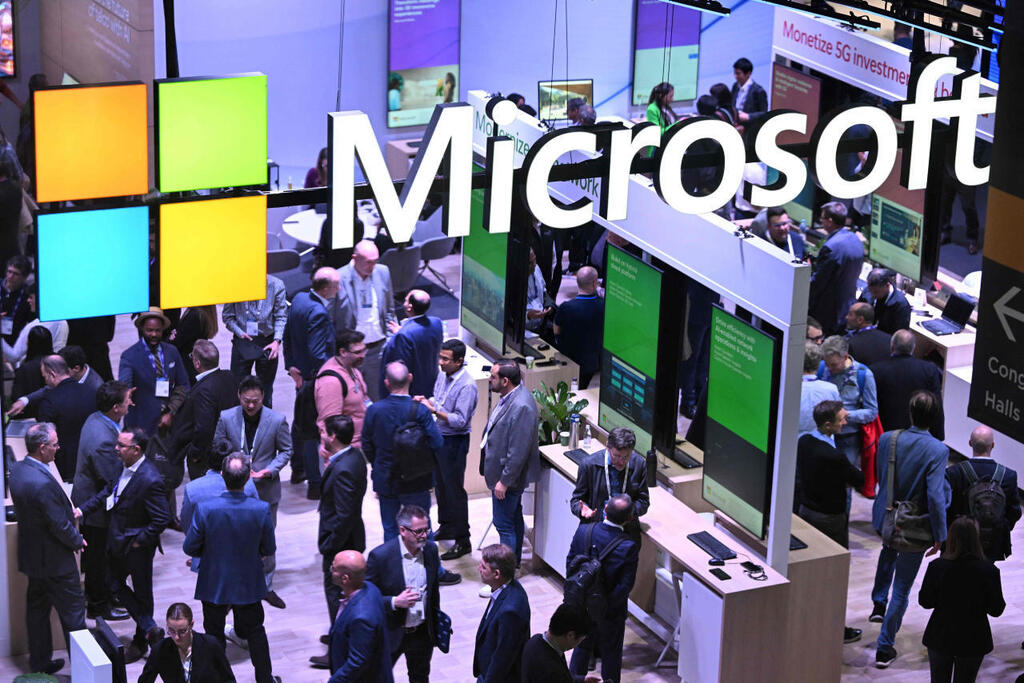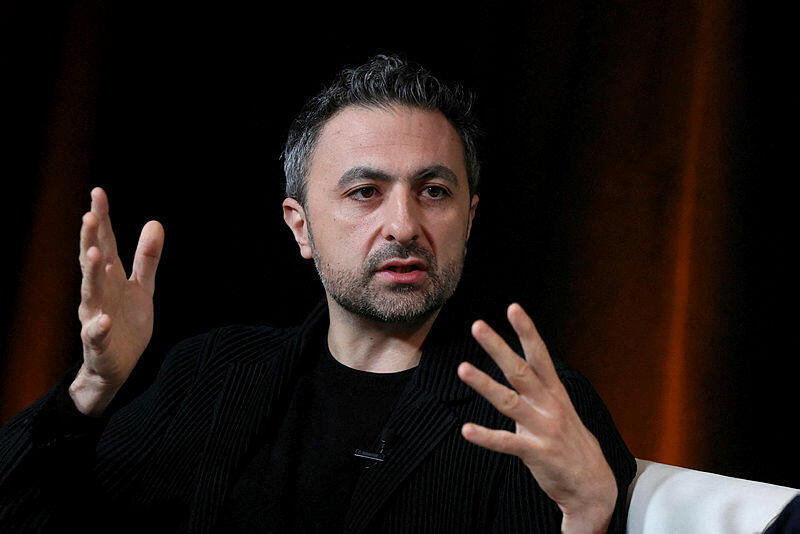
Microsoft's AI power play is bad news for innovation
Mustafa Suleyman, who left Google to found Inflection AI and design artificial intelligence products for the public good, has been swallowed up by Microsoft. The message to consumers waiting for AI products: in this race there is only room for giants who will shape the market according to their interests
Microsoft announced on Tuesday that it will establish a consumer artificial intelligence unit called Microsoft AI, which will be headed by Mustafa Suleyman. This is not merely a symbolic or organizational move, but a sign of what should have been clear a long time ago - in the generative artificial intelligence race there is only room for giants to lead and shape the market according to their discretion. The general public can only conclude: prepare yourselves for disappointment.
Suleyman will report directly to CEO Satya Nadella and will be responsible for the expansion of artificial intelligence products for private and business consumers, including the writing assistant Copilot, the Bing search engine and the Edge web browser.
He is a talented entrepreneur who founded the artificial intelligence laboratory DeepMind in 2010 and moved to Google after it acquired his company in 2014. Following years of scandals and allegations of his rebellious management approach, Suleyman retired from Google in 2022 to found a new artificial intelligence company - Inflection AI. With this company he planned to compete unhindered with OpenAI, another young company that has risen in order to break away from the agenda of the giants, to build and design artificial intelligence products for the public benefit.
From two young and idealistic companies we are now left with zero. This is because no matter how talented Suleyman or the people at OpenAI are, the way they seek to develop in the field is limited by the financial and computational capabilities required in the field.
The year 2023 was full of headlines about massive investments in the field of generative artificial intelligence. Among other things, OpenAI raised $10 billion from Microsoft in January, and Inflection AI raised $1.5 billion in June (a fundraising in which Microsoft also participated). Several young companies grew so quickly that there were those who claimed that the landscape of the technology world would surely change, and that small players would rise up to challenge the giants. The less cautious envisioned a complex but inevitable process of replacement between small and large, while the more cautious envisioned the development of a parallel arena of new giants. A third option was less talked about - the innovation will be acquired or cloned by the giants, who will exclude the small startups from the competition. And that's what happened.
Incorrect and false products
The large amount of money raised in the past year is small compared to the needs of the field. It takes a lot more than a few hundred million dollars to train language models with the speed and quality to give developers a lead in the field. One estimate is that operating ChatGPT alone costs OpenAI over half a million dollars a day. Estimates that the company did not deny. Along with the capital for operation, there is also the capital for long-term support in order to contain the disasters that characterize the field of generative artificial intelligence, including products that produce incorrect, false, delusional and racist products. Public image disasters that small startup companies are not able to deal with, and complex product failures, which make it difficult to turn models into mature products for business.
These complexities are so pressing that back in 2019 OpenAI broke away from the "public benefit" model and brought in Microsoft as a major investor, relying not only on its mountain of cash but also on the Azure cloud and computing infrastructure. And now they've brought in Inflection AI, founded less than two years ago, to do more or less the same thing, only much worse. In the current move, Inflection has literally been emptied of its human capital in a way that has turned it from a rival to a "studio", as it were.
Microsoft is not unique in its greedy approach to talent and competition. Acquisitions, mergers and collaborations took place throughout the year along with recruitments. For example, Apple entered into a partnership with Google to use its model - Gemini. Amazon has created a platform to host smaller artificial intelligence companies, including Israel's AI21, in exchange for its computing power, just so it won't be left behind. This is how the technology sector works - if the giants do not manage to compete with the innovative startups, nor buy them, you can be sure that they will do everything to obtain their human talent and will constantly leverage their customer base and amounts of data to get ahead and lead in a field that they did not know how to develop on their own. Which is not good news for the field, or for us, as users thirsty for the magical future we were promised.
Although the technology giants usually claim that their size is an advantage, and explain to regulators and legislators that only it will help in the international struggle for technological supremacy, when it comes to innovation - large companies are where good ideas go to die. Because unlike what they usually claim, that regulation (on them) stifles innovation, in practice, big money does it much earlier.
Google has Google Maps, Facebook has Instagram, Microsoft has PowerPoint, and Apple has Shazam. But none of these inventions came from the companies themselves, but from small and creative startups that they purchased or copied from. They may claim to be innovative, but in reality they are merely purchasing every innovative product on the market and adding parts of it to their existing products. These are not anecdotes, but trends.
For example, one study from January from the University of Texas found that developments that come from startups lead to more subsequent inventions compared to developments that come from large corporations. Another study published in April by researchers at the University of Chicago and the U.S. Census Bureau found that entrepreneurs who join large firms may get paid more, but also produce fewer innovations than those hired by younger firms. Quantitative studies have found that giant companies are mainly engaged in improving innovative products developed by young companies. The most powerful and profitable companies in human history are stuck in a stasis of innovation and are tempted into monopolistic behavior.
A Princeton University study from February actually enumerated the stages of the giants' stranglehold: First, gathering information about startups that might develop disruptive technologies and mitigating competition by investing in or partnering with them. The next step is cutting off resources (like big data) from competitors with competing products, and then working with regulators to pass regulations that big companies can comply with but that will kill small competitors. Finally, the purchase of every company that resists and survives. When these trends meet with the field of artificial intelligence, they become particularly toxic and pave the way for mass disappointment.
After two years of promises about the wonderful new world that awaits us with artificial intelligence, in practice we are on the way to a duopoly - Google versus Microsoft. The two not only dominate the field with their models and cloud, but will also be the main source for new and innovative startups to build their applications. Unfortunately, because the models themselves are disappointing, it's safe to assume that many new apps will be disappointing as well. We can only hope that in the future more talented entrepreneurs will leave the giants and try to develop products, without the big money.















